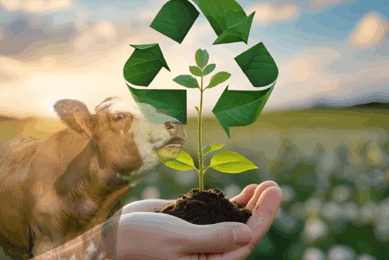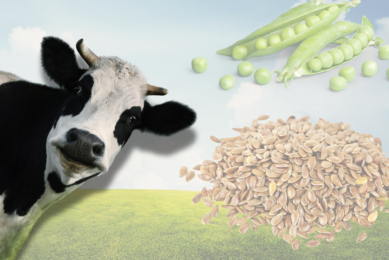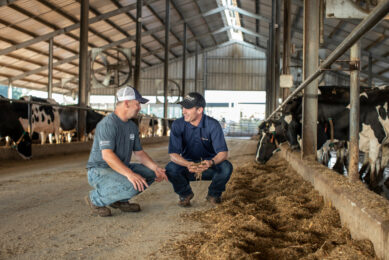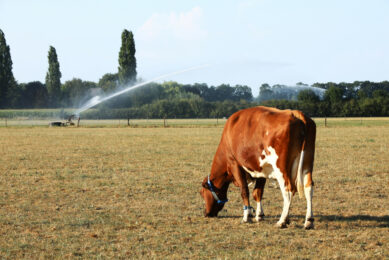Alltech ONE: Opportunities and challenges in dairy
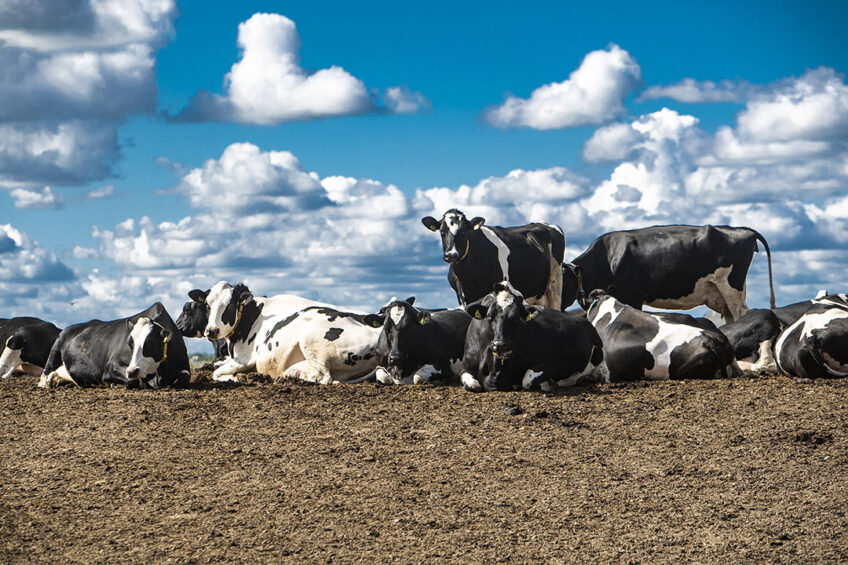
The recent Alltech ONE Ideas Conference looked at the dairy sector and dove into topics on climate change, emissions, feed use and consumer expectations. Many aspects in this industry were covered, inluding opportunities, solutions and challenges in the dairy sector. We summarise some of the highlights that were brought to the forefront during this event.

A different diet will not save the planet
New eating habits and an ever-increasing focus on agricultural effects on the environment featured in the keynote speech by Dr Mark Lyons, president and CEO of Alltech. He said: “They are saying that we need to change our diet in order to save our planet. And while their ideas may not be based on fact, they are certainly not alone. We see a lot of negativity in many media publications towards agriculture and more specifically, towards animal agriculture and the area of beef production in particular.”
Dr Lyons highlighted how some of the best restaurants in the world are removing beef from their menus and how animal protein is also being removed from many recipes, all because some people think producing beef harms the climate.
If the United States eliminates all its dairy cows, greenhouse gas emissions there will only fall by 0.7%
Standing up for their industry
Europe has introduced the Green Deal and in the United States the Biden administration is drawing up its own climate programme. Dr Lyons said farmers need to stand up for their industry when it comes to the benefits of farming on the environment. He said that if the United States eliminates all its dairy cows, greenhouse gas emissions there will only fall by 0.7%, and at the same time will remove 39 essential nutrients from human diets.
His conclusions were that: “We really have to realise that we will not save the planet with a different plate. It is our utilisation of fossil fuels that is driving climate change. When all of humanity turns vegan, we will not save our climate challenge.”

Farmers can be the saviours of Mother Earth
Mother Earth is under a great deal of pressure of billions of inhabitants going about their daily lives, sometimes with complete disregard to the damage they are causing. During his keynote speech, David McWilliams, economist and professor at Trinity College Dublin, Ireland, discussed the world and the Covid-19 pandemic.
The pressures, said Prof McWilliams, include global warming, rising sea levels, polluted rivers, parched lands, blackened skies, and global pandemics. “We all have a fair idea where the story ends. But there is an alternative. It is legacy thinking. And the farmer, the traditional steward of our planet, its animals, its land, forests, and rivers, can be its saviour. So, with just 1 planet to share, we are all in this together.
Conservationists and consumers, farmers and activists, industry and government, man and Mother Nature, and the goal is the 3 H’s, healthy people, healthy society, and a healthy planet.”
We will continue to produce more with less, and this time, for healthier people, a healthier society, and a healthier planet
His take-home message was that agriculture is the reason our civilisations developed, and our food systems and diets still remain diverse and amazingly responsive. “While the challenge of feeding the growing planet will fall on fewer shoulders than was the case in the past, with innovation and the will to be that good ancestor, we will continue to produce more with less, and this time, for healthier people, a healthier society, and a healthier planet.”

Higher milk production, lower carbon hoofprint
Dr Saheed Salami, research fellow at Alltech, outlined some of the main sustainability challenges farmers face. “Greenhouse gas emission remains a top topic now. And I think with the Joe Biden Climate Summit recently, that happens to be more resonating for the industry, especially in reducing greenhouse gas emissions from the livestock chain. It is very clear that going forward, it is not going to be business as usual, and stricter environmental regulations will come in from the government, and much of the dairy industry has to adapt to these changes.”
Reducing enteric methane and feed use offers a large opportunity for us to reduce greenhouse gas emissions
Dr Salami recognised that the dairy industry produces the second largest source of emissions in the livestock sector. He added: “So what we see there is that enteric emission from the rumen and feed use actually make up the 2 largest sources of emissions on dairy farms, which contribute over 60% of the total emissions. We still have other sources of emissions like manure, which is nitrous oxide specifically, and also artificial fertiliser and electricity use. But of course, we know that if we want a more sustainable dairy farm, we need to be able to focus on all of these sectors on the farm to be able to reduce emissions. More specifically, reducing enteric methane and feed use offers a large opportunity for us to reduce greenhouse gas emissions.”
The answers, said Dr Salami, involved being able to increase feed digestibility, and reduce the use of high carbon inputs in feed ingredients and being able to utilise nitrogen from the feed better.

Opportunities for the global milk trade
With a potential 7 billion consumers around the world the future for the global dairy industry is positive. However, only if the industry focuses on customer requirements will there be a heavy focus on production transparency and source of origin.
Dairy has gained importance among other food items globally
Dr Torsten Hemme, CEO and founder of the IFCN Dairy Research Network, said dairy demand in a nutshell is all about a glass of milk. “On average, a person on this planet drinks 1 glass of milk, 0.3 litres, or eats 30 grammes of cheese per day. The biggest opportunity for the dairy industry lies in the trust of these consumers.” The global supply chain consists of 121 million farms with an average of just 3 cows supplying 2.5 tonnes of dairy each per year.
“People talk about the crude oil price, the world feed price, and the world milk price. During Corona times oil prices were very low, feed prices are low and milk prices stay quite normal. Now, 12 months later, oil prices fully rebounded, feed prices are up 50%. And milk prices on a global level look very good. Dairy has gained importance among other food items globally.”
Dr Hemme said farmers needed better IT solutions. “The biggest opportunity for dairy farmers lies in getting the farming system better managed, more digital and then getting the trust from the consumers. Our 2050 outlook is telling us that there is a possibility that global dairy demand will grow by another 50%. But this is only possible if we move to carbon neutral dairy farming or at least try very, very hard to,” he said.
Join 13,000+ subscribers
Subscribe to our newsletter to stay updated about all the need-to-know content in the dairy sector, two times a week.



